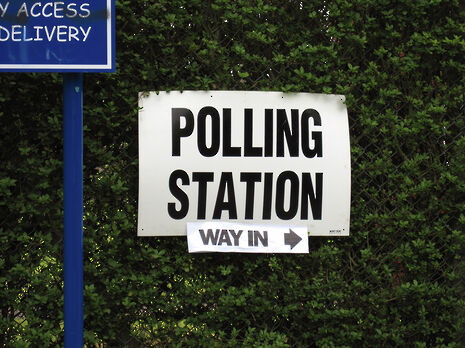Thousands of students unable to vote
Changes in the electoral registration system leave thousands without a vote

Almost 2,000 people in Cambridge are no longer registered to vote, including many students.
Last year, voter registration in the UK switched to an individual-based system, where previously, the “head of the household” had registered voters. In Cambridge, this allowed colleges to register students collectively.
Although 87 per cent of voters were transferred to the new register using government records of their permanent address, many students living in rented accommodation or frequently moving residence are no longer on the list. The registration figure for inhabitants of the student-dominated wards of Cambridge is only 70 per cent.
Chief executive of the City Council, Antoinette Jackson, assures voters that “we are doing a lot of work to register as many people as possible.”
Some students have not experienced any problems with the system. Sophie Bell from Selwyn said: “My MP sends letters out to under-21s, there are normally Facebook and TV adverts with links to the website, which is pretty easy to use.”
However, CUSU Co-ordinator Jemma Stewart says that more needs to be done, as many students are unaware of the change.
“They do not necessarily realise that they have to register, or if they are registered,” she said.
The number of registered voters could make a crucial difference in the upcoming election, as current polling shows a close contest in Cambridge
According to a September Ashcroft poll in the city, Labour leads the Liberal Democrat incumbent, Julian Huppert, by one point.
Concerns have already been raised about the political disengagement of young people, and confusion regarding the registration process may exacerbate the problem.
“‘If we want politics to be relevant to young people, politics has to adapt accordingly,” said Roger Smith, Professor of Social Work at Durham University, in an interview at the Wilberforce Society’s recent conference on The Lost Generation.
“Young people are communicating in new and different ways... there is a disconnect between conventional political structures.”
Smith suggests that politicians need to better communicate with younger constituents in a more accessible language and medium.
Professor Jonathan Tonge of the University of Liverpool has put forward a number of measures that politicians could implement to engage young voters.
“They could have dedicated surgeries for young people, so they could bring their particular problems. The parties themselves could do more to attract young people,” he argues.
In order to vote in May 2015, register by 20th April. It can be done online at www.gov.uk/register-to-vote
 News / Activists target Trinity chapel over Israel links26 April 2024
News / Activists target Trinity chapel over Israel links26 April 2024 News / Students protest Trinity open day over Israel ties27 April 2024
News / Students protest Trinity open day over Israel ties27 April 2024 News / Emma May Ball U-turns on ‘accessible’ half-shift staffing28 April 2024
News / Emma May Ball U-turns on ‘accessible’ half-shift staffing28 April 2024 Comment / Why we should all work a part-time job26 April 2024
Comment / Why we should all work a part-time job26 April 2024 News / Fitz students face ‘massive invasion of privacy’ over messy rooms23 April 2024
News / Fitz students face ‘massive invasion of privacy’ over messy rooms23 April 2024




